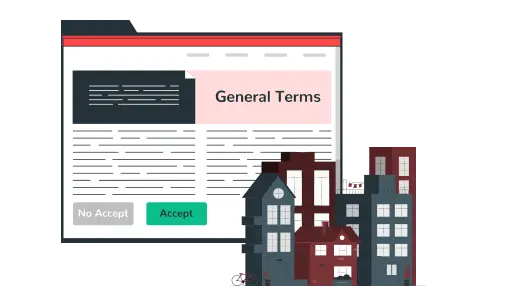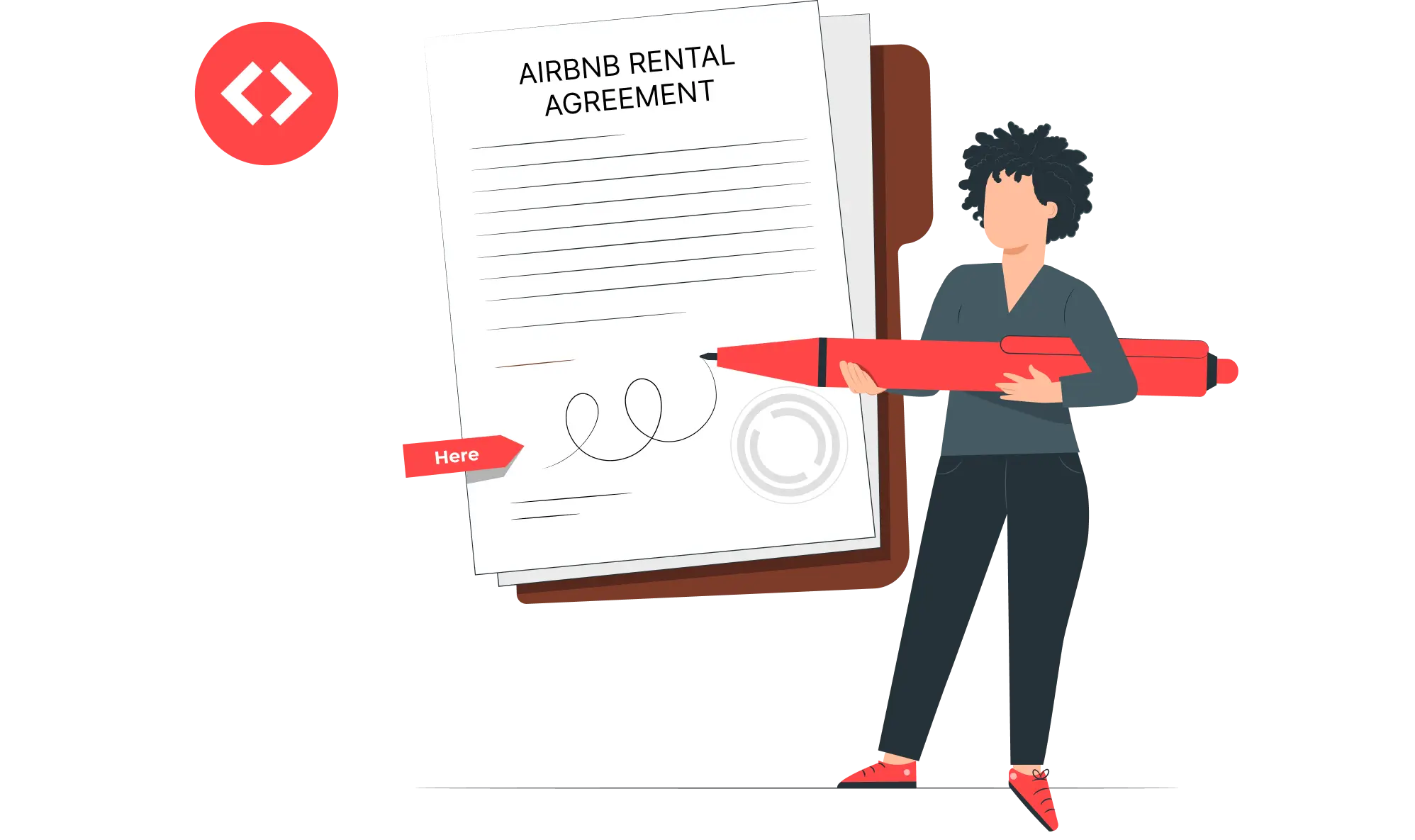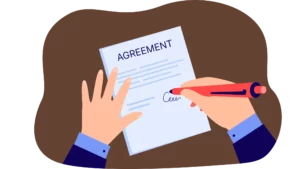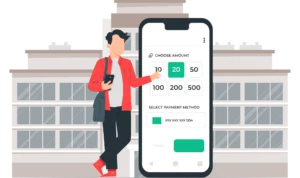Updated: August 14, 2024
When renting your property on Airbnb, an Airbnb rental agreement would help ensure that your guests and you are always cared for. A short-term rental agreement will be a great asset for you.
As a host, your responsibility goes beyond providing a place to stay. You can ask guests to sign an Airbnb rental agreement before their stay, ensuring the terms are fully disclosed in your listing description. This direct communication with the guest is not just a formality but a way to establish a connection and a sense of responsibility.
What is an Airbnb Rental Agreement?
An Airbnb Rental Agreement acts as a mutual understanding between you and your guests about the entirety of their stay. It lets your guests know what they should expect at your property. A rental agreement can communicate your cancellation policy, extra guest policy, safety measures, and more.
While it has significant benefits for guests, as a host, you can use the rental agreement to get helpful information such as contact details, agreement for potential costs, and any other information you would want to know.


Importance of Airbnb Rental Agreement
Having a well-crafted Airbnb rental agreement is essential for several reasons:
- Clarity: It provides a clear understanding of the rules and expectations for both hosts and guests.
- Protection: It protects the host’s property and sets guidelines for guest behavior, reducing the risk of damage or disputes.
- Professionalism: A formal agreement conveys professionalism and can enhance the guest’s perception of the rental experience.
What Should Be Included In A Rental Agreement?
A short term rental agreement is a crucial document that outlines the terms and conditions between hosts and guests in the vacation rental industry. It clarifies expectations, protects both parties and enhances the overall guest experience. Here’s a comprehensive guide on what to include in an Airbnb rental agreement, tailored specifically for vacation rentals.
1. Property Details
Your Airbnb rental agreement should begin with a detailed description of the property. This includes:
- Address: Clearly state the rental property’s address.
- Amenities: List all available amenities (e.g., swimming pool, hot tub) and any limitations (e.g., seasonal availability).
- Occupancy Limits: Specify the maximum number of guests allowed, including any provisions for children or infants.
2. Contact Information
Provide multiple ways for guests to contact you or your property manager. Include:
- Primary Contact Number: Your main phone number for non-emergency inquiries.
- Emergency Contact: A separate number for urgent issues, along with estimated response times.
- Property Manager Details: If applicable, include the contact information for any property management staff.
3. House Rules
House rules are vital for maintaining order and ensuring a pleasant stay. Include:
- Noise Restrictions: Outline quiet hours and any noise-related policies to prevent disturbances to neighbors.
- Smoking Policy: Specify whether smoking is allowed on the property and any designated areas if it is.
- Pet Policy: State whether pets are allowed and any associated fees or restrictions.
4. Occupancy Conditions
Clarify occupancy conditions to avoid misunderstandings:
- Bed Configuration: Describe the sleeping arrangements, including the number of beds and their sizes.
- Additional Guests: Outline any fees or policies regarding additional guests beyond the agreed limit.
5. Minimum and Maximum Stay Requirements
Define the duration of stays:
- Minimum Stay: Specify the shortest duration for bookings (e.g., two nights).
- Maximum Stay: Mention any limits on how long guests can stay, especially if you’re targeting short-term rentals.
6. Check-in and Check-out Terms
Clearly outline the check-in and check-out procedures:
- Check-in Time: State the official check-in time and any flexibility.
- Check-out Time: Specify the check-out time and any penalties for late departures.
7. Rental Rates and Additional Charges
Provide a transparent breakdown of costs in the airbnb rental agreement:
- Base Rate: Clearly state the nightly rate.
- Cleaning Fee: Include any cleaning fees and explain what they cover.
- Additional Charges: List any other fees, such as for extra guests, late check-out, or damage deposits.
8. Damage Deposits
Detail your policy regarding damage deposits:
- Deposit Amount: Specify how much the deposit is and the conditions for its return.
- Damage Policy: Outline how you will assess damages and the process for returning the deposit.
9. Insurance Recommendations
Encourage guests to consider insurance options:
- Liability Insurance: Explain the importance of insurance coverage for potential damages or accidents.
- Host Protection: Inform guests about Airbnb’s host protection policies, Aircover, and any additional coverage you might have.
10. Cancellation Policy
Clearly state your cancellation policy to avoid disputes:
- Policy Details: Include the terms of your cancellation policy, including deadlines for cancellations and any associated fees.
- Refund Process: Explain refund processing methods and any conditions that apply.
11. Payment Details
Break down the payment process:
- Payment Methods: Specify acceptable payment methods (e.g., credit card, PayPal).
- Payment Schedule: Outline when payments are due, including deposits and final payments.
12. Signatures of Both Parties
To finalize the airbnb rental agreement:
- Signature Lines: Include spaces for both the host and guest to sign.
- Printed Names and Dates: Ensure both parties print their names and date the agreement for validity.
Things to Consider When Sending It?
- Timing: Send the rental agreement as soon as the booking is confirmed, allowing guests ample time to review it before their stay.
- Digital Format: Consider sending the agreement electronically for convenience, but also offer a paper version if preferred.
- Automate Reminders: Use property management software to automate reminders for guests to review and sign the agreement.
Conclusion
An Airbnb rental agreement pdf is more than just a formality; it’s a vital tool for ensuring a smooth rental experience for hosts and guests. You can set clear expectations and protect your investment by including essential details such as property specifics, house rules, and payment terms.
A well-structured rental agreement ultimately enhances guest satisfaction and fosters a positive relationship, encouraging repeat bookings and referrals. As you draft your agreement, keep it clear and concise, avoiding legal jargon that might confuse your guests. Your Airbnb rental can thrive in the competitive vacation rental market with the right approach.









